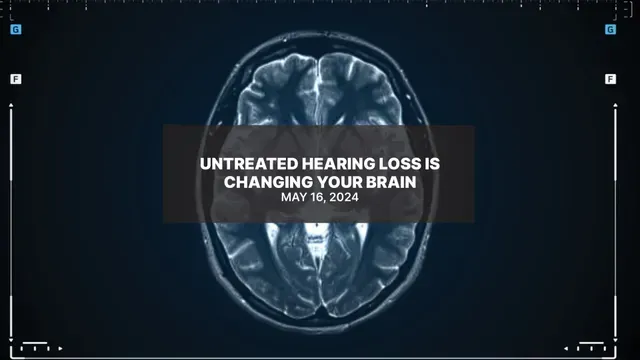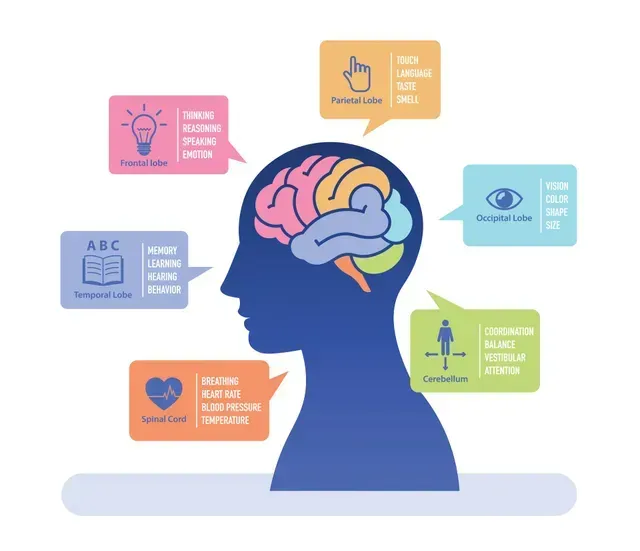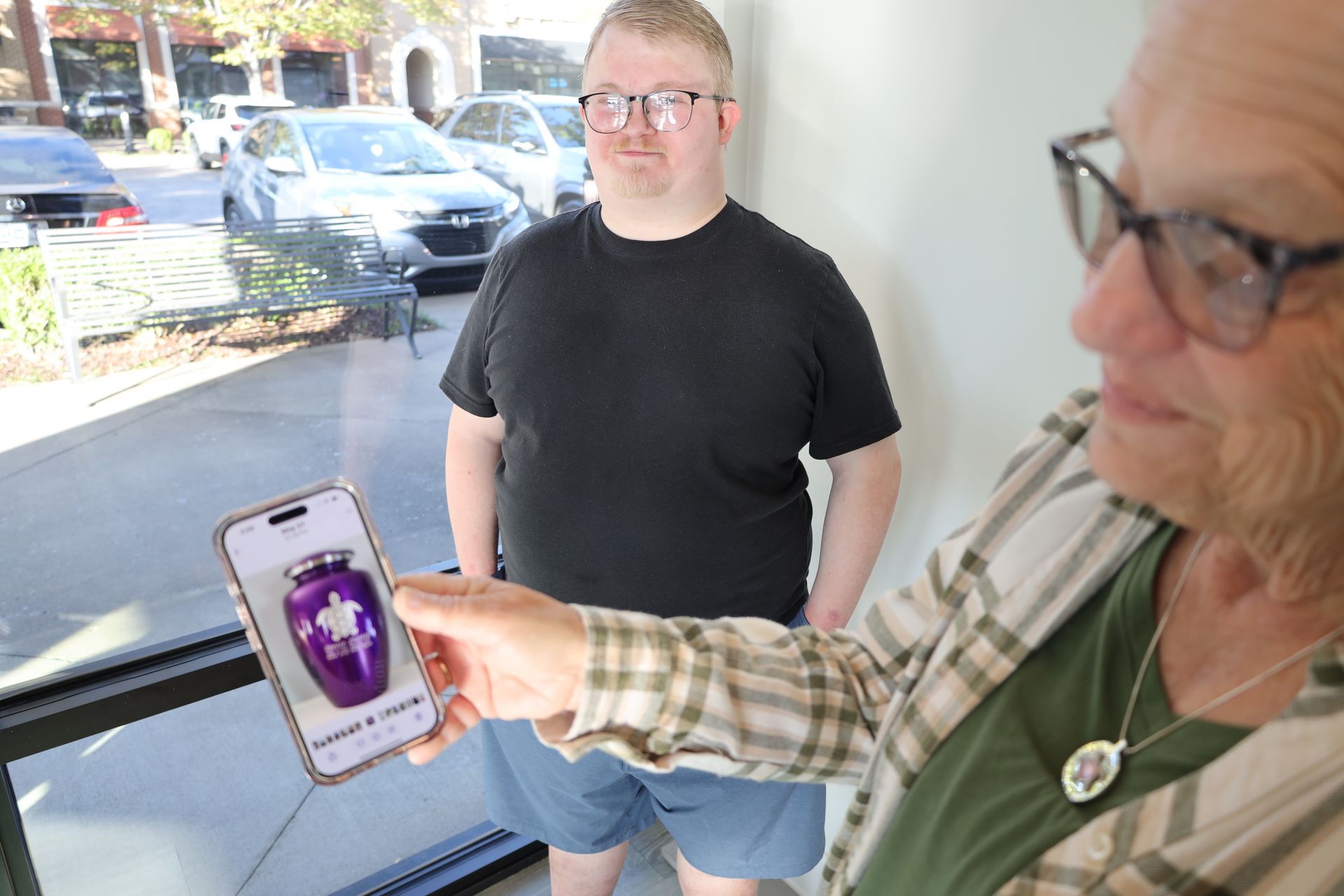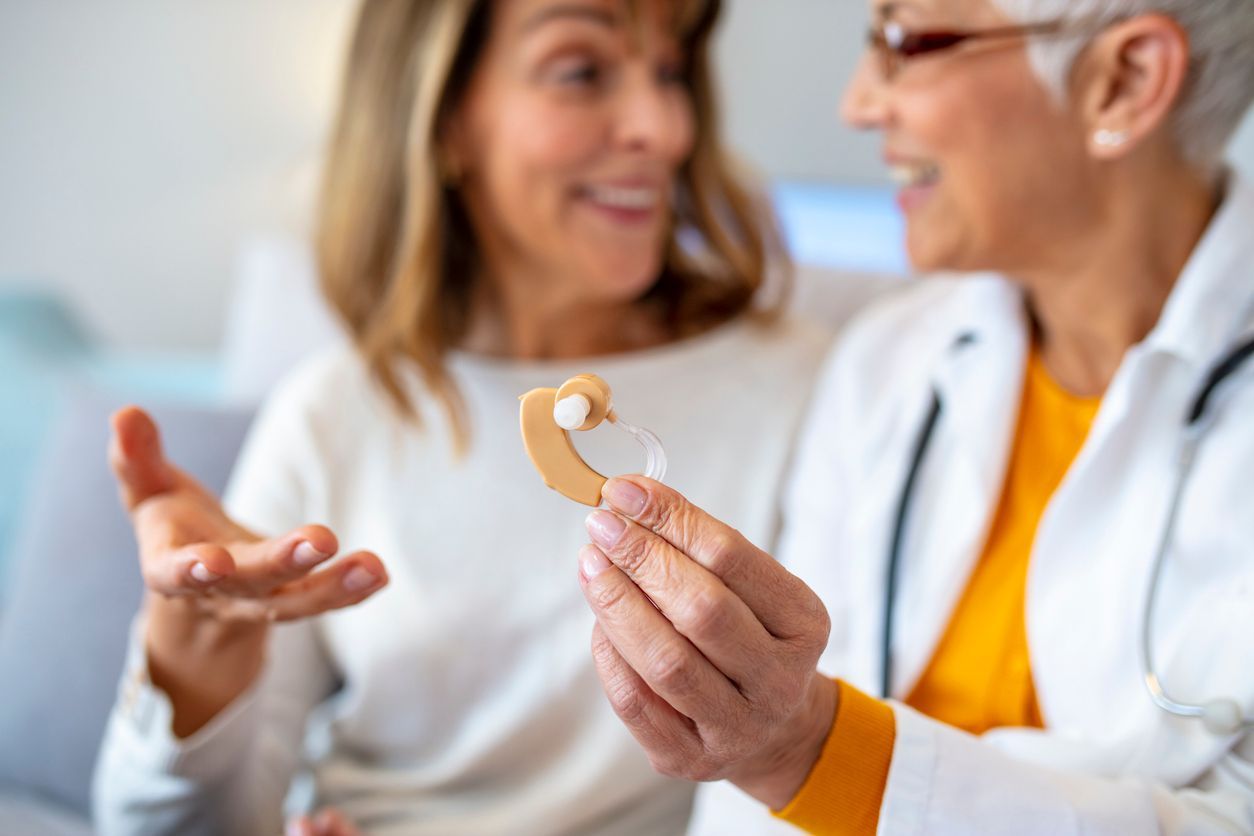Untreated hearing loss is changing your brain

Research reveals that hearing loss actually rewires your neural pathways
Your Amazing Brain
Your brain is an amazing organ! This wrinkly, reddish-pink mass weighs about the same as your two-slice toaster, tipping the scales at about three pounds. Acting as a master control center, your brain enables every thought, breath, eye blink, heartbeat, movement—everything—that happens in your body. Rivaling the world’s most powerful supercomputer, your brain can download, process, and react in milliseconds to the tidal wave of information coming from your eyes, skin, nose, tongue, and ears.
Neuroplasticity and Your Sense of Hearing
Researchers have discovered that the human nervous system—made up of the brain, spinal cord, and a complex network of nerves—has incredible capacity to modify itself, both in function and physical structure. This is called neural plasticity. Dr. Megan Johnson, audiologist and owner of Johnson Audiology explains, “Neural plasticity is going gangbusters in a child’s brain as the child develops and matures into adulthood. Based on years of brain research, we also know that the adult brain is far from being fixed. It, too, changes and adapts when you learn new information or skills or as a response to stress, hormonal fluctuations, drug interactions, injury, and much more.”
Dr. Johnson also relates that “your brain displays neuroplasticity when you experience hearing loss.” By measuring brain waves using an electroencephalograph, or EEG, scientists have studied how the brain of a person with hearing loss functions compared to a person with normal hearing. The results are both fascinating and sobering as studies reveal that, in those with hearing loss, the portion of the brain devoted to hearing becomes reorganized. This can be true even with early-stage, mild hearing loss, and the process happens quickly, often in months rather than years.
The Hearing Center of Your Brain and Beyond
What is actually happening when this takes place? Your brain has a right and a left hemisphere and six major lobes. Think of your frontal lobe as your brain’s boss, where executive functions like decision making, emotion and impulse control, and planning occur. Your temporal lobe, which contains the auditory cortex, is doing the heavy lifting when it comes to interpreting sounds and assigning those sounds meaning. The temporal lobe processes speech and language, and it is where initial learning of new information takes place, which is the first step for logging that information into memory.
Dr. Johnson goes on to relate, “When the delicate infrastructure of your ear has become damaged through noise exposure, infection, etc. leading to hearing loss, your auditory cortex cries out to your frontal lobe, saying ‘Help! Help! I’m not receiving any sound to process, so I feel lost.’ The frontal lobe ‘boss’ jumps to attention, and your occipital lobe, responsible for processing vision and touch, takes over the areas in which hearing is normally processed. In other words, your other senses seek to compensate for the deficit due to the loss of your sense of hearing.”
Amazing, right? So, where’s the rub? Picture a car assembly line; each worker has an assigned task. One day, the worker who installs the windshields is absent, and the worker who attaches the rearview mirrors is assigned double duty, and a duty that was not part of job training. It is easy to see how the worker left juggling both jobs is compromised, and a car might slip through minus a rear view mirror.
Similarly, the areas of your brain that are being taxed to make up for a lack of hearing are overloaded and less able to do their assigned responsibilities. “This explains why so many of my patients with hearing loss relate feeling exhausted and frustrated after a big family gathering—where multiple talkers and sounds must be interpreted—rather than happy and invigorated by the experience. We call this listening fatigue,” states Dr. Johnson.
Additionally, when left untreated long enough, researchers point to the brain’s reorganization due to hearing loss as a significant correlation with dementia.
Hearing Technology and Your Brain
“But here's the great news!” Dr. Johnson says. When a person is fit with hearing aids or a cochlear implant and sound is restored, the brain has the ability to adjust back—partially or completely—to proper function. How swiftly that happens often depends on how long the hearing loss went untreated and is why she encourages patients to treat hearing loss sooner rather than later. “Here is what I tell patients who are downplaying the importance of hearing: If you won’t treat your hearing loss for the sake of your ears, do it for your brain!”

Recent Posts



